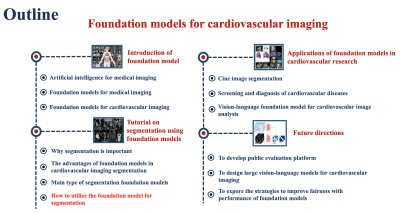Weekend Course
Laying the Foundations of Cardiovascular MRI
ISMRM & ISMRT Annual Meeting & Exhibition • 10-15 May 2025 • Honolulu, Hawai'i

| 13:15 |
Acquisition: Protocols & Planning I
Tevfik Ismail
Impact: This session provides an overview of how basic
CMR images are planned and acquired and how these can be
used to leverage the multiparametric capabilities of the
technique to build more complex protocols to answer focussed
clinical questions.
|
|
| 13:45 |
Acquisition: Protocols & Planning II
Wendy Strugnell
|
|
| 13:50 |
Reconstruction: Faster & Better Scans I
Teo Lynette
Impact: Clinical perspective on how compressed sensing
and artificial intelligence-based reconstructions can fit
into clinical cardiac MRI workflow and the importance of
user engagement and addressing their concerns.
|
|
| 14:20 |
Reconstruction: Faster & Better Scans II
Thomas Küstner
Impact: In deep learning for MR image reconstruction,
regularization terms are learned and approximated by neural
networks. Image enhancement, direct mapping, physics-based
unrolling and distribution-based methods will be presented
and discussed.
|
|
| 14:25 |
Post-Processing & Analysis: Faster & Automated Workflows I × Video Permission Withheld
Deborah Kwon
Impact: In this talk, you will be walked through the
daily reality of clinical CMR interpretation—and why your
innovations in post-processing and automation aren’t just
nice-to-have… they’re mission critical to catalyze CMR
utilization to expand advanced care for all patients.
|
|
| 14:55 |
 |
Post-processing & Analysis: Faster & Automated Workflows II
Chengyan Wang
Impact: Foundation models are transforming
cardiovascular imaging by enhancing cardiac MRI analysis.
Leveraging deep learning and large datasets, they reduce
clinician cognitive load. This presentation outlines the
foundational principles behind these models.
|
| 15:00 |
Panel Discussion and Q&A
Michael Salerno, Julia Schnabel
|
The International Society for Magnetic Resonance in Medicine is accredited by the Accreditation Council for Continuing Medical Education to provide continuing medical education for physicians.